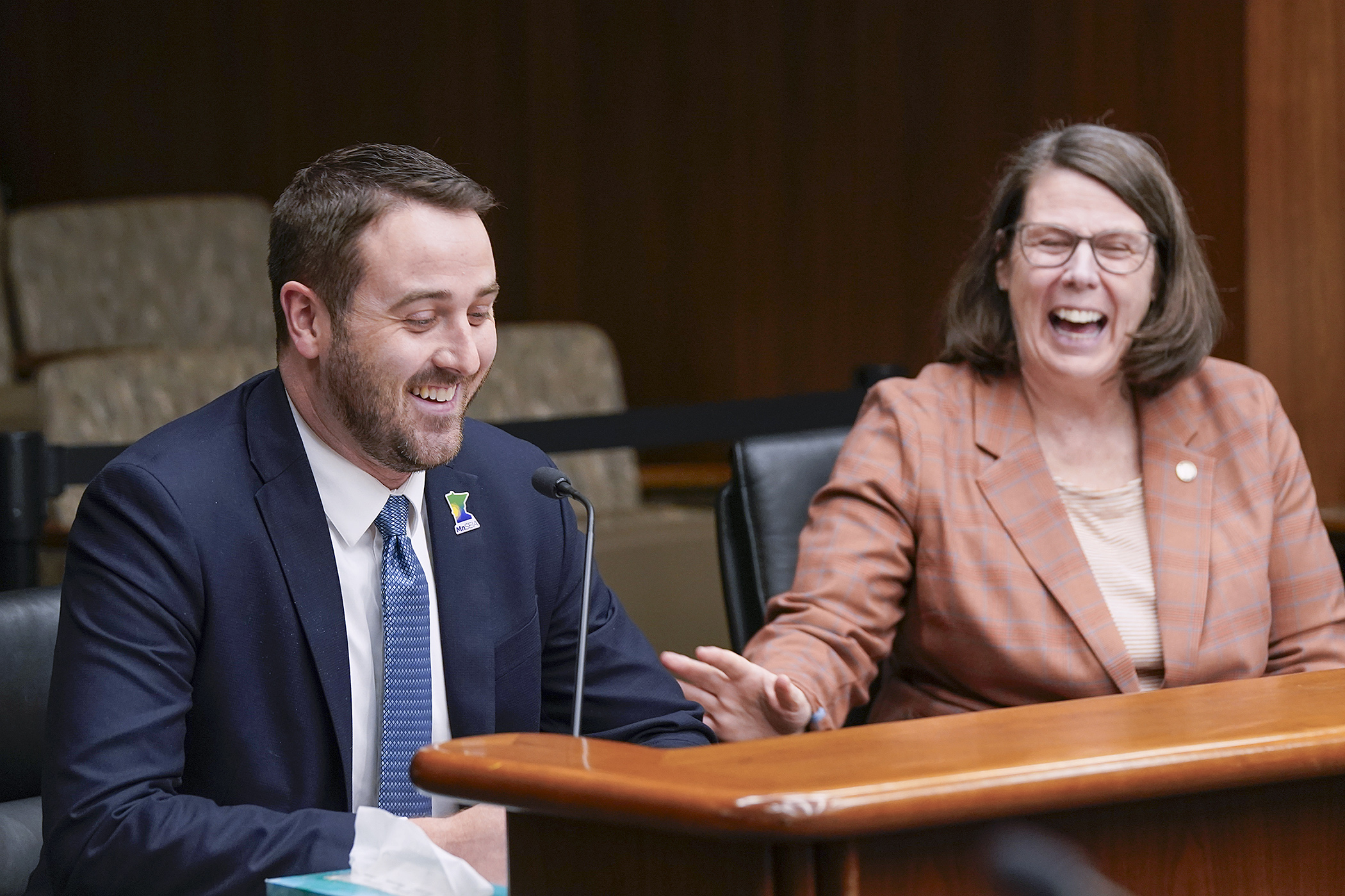Electrical upgrade costs could be shared under bill

When she decided to have solar panels installed on her home, Rep. Patty Acomb (DFL-Minnetonka) learned something about the economics of introducing a new mode of generating electricity into her neighborhood.
“Our project triggered the need for a new transformer,” she told the House Climate and Energy Finance and Policy Committee Wednesday. “If we wanted to continue our project, we’d have to pay for the total cost of the improvements, even though the expanded capacity went above our project’s needs. The result [was] the potential project after ours would not be required to pay for any of this capacity.”
To her, it didn’t make sense that the cost of what could become a shared benefit for an area’s residents should be borne by the first homeowner triggering the need for a distribution upgrade. Since then, her electric utility, Xcel Energy, has implemented a cost-sharing pilot project for small rooftop projects in which each homeowner pays into an upgrade fund that covers costs over $15,000.
That is the genesis of HF5097, an Acomb-sponsored bill that would require the Public Utilities Commission to develop a cost-sharing process for distribution system upgrades and would create an ombudsperson position at the commission to assist interconnection applicants and facilitate interconnection disputes between applicants and utilities.
The committee laid the bill over, as amended, for possible inclusion in a larger climate and energy bill.
“Interconnection is a set of rules that new electricity generation must follow to connect to the grid,” Acomb said. “Currently, in just the Xcel area, there are over 400 project applications that are in the queue and deemed complete waiting to be interconnected. As I understand the reason for the large numbers, it’s mostly due to congestion on the grid or the lack of capacity for new generation and the costs with the associated upgrades.”
“I appreciate the idea of it,” said Rep. Chris Swedzinski (R-Ghent). “I’m just not sure about starting a program that potentially could affect utilities and ratepayers in a negative way, to allow ratepayers to subsidize the costs of interconnection for developers from potentially out of state or in state. And I’m concerned about empowering unelected folks at the PUC to come up with a program that we’re not exactly sure what it’s going to look like.”
The nonpartisan Legislative Budget Office estimates that the bill’s changes would require $266,000 from a restricted miscellaneous special revenue fund in fiscal year 2025 and $497,000 in the 2026-27 biennium.
Related Articles
Search Session Daily
Advanced Search OptionsPriority Dailies
Speaker Emerita Melissa Hortman, husband killed in attack
By HPIS Staff House Speaker Emerita Melissa Hortman (DFL-Brooklyn Park) and her husband, Mark, were fatally shot in their home early Saturday morning.
Gov. Tim Walz announced the news dur...
House Speaker Emerita Melissa Hortman (DFL-Brooklyn Park) and her husband, Mark, were fatally shot in their home early Saturday morning.
Gov. Tim Walz announced the news dur...
Lawmakers deliver budget bills to governor's desk in one-day special session
By Mike Cook About that talk of needing all 21 hours left in a legislative day to complete a special session?
House members were more than up to the challenge Monday. Beginning at 10 a.m...
About that talk of needing all 21 hours left in a legislative day to complete a special session?
House members were more than up to the challenge Monday. Beginning at 10 a.m...